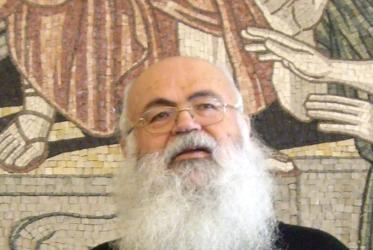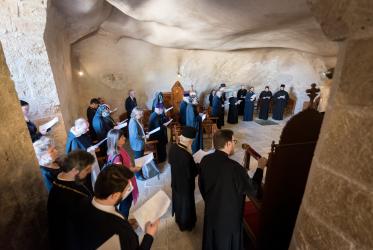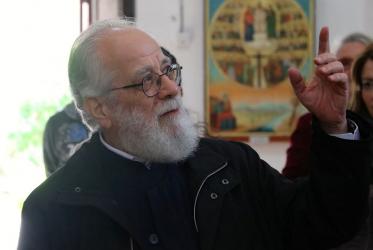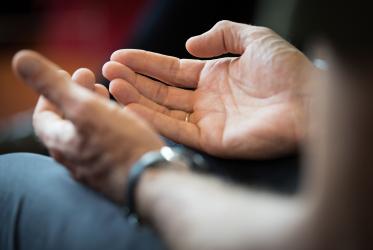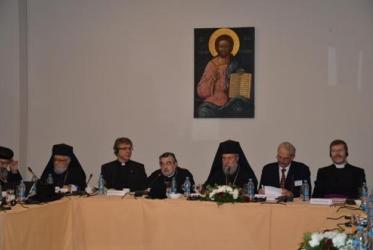Displaying 1 - 10 of 10
WCC fields inter-Orthodox response to convergence text
17 October 2016
Facilitating peace with passion
26 July 2016
Cyprus: churches pray for unity of the island
24 November 2014
Pilgrimage of justice and peace gives vision for WCC programmes
22 November 2014
